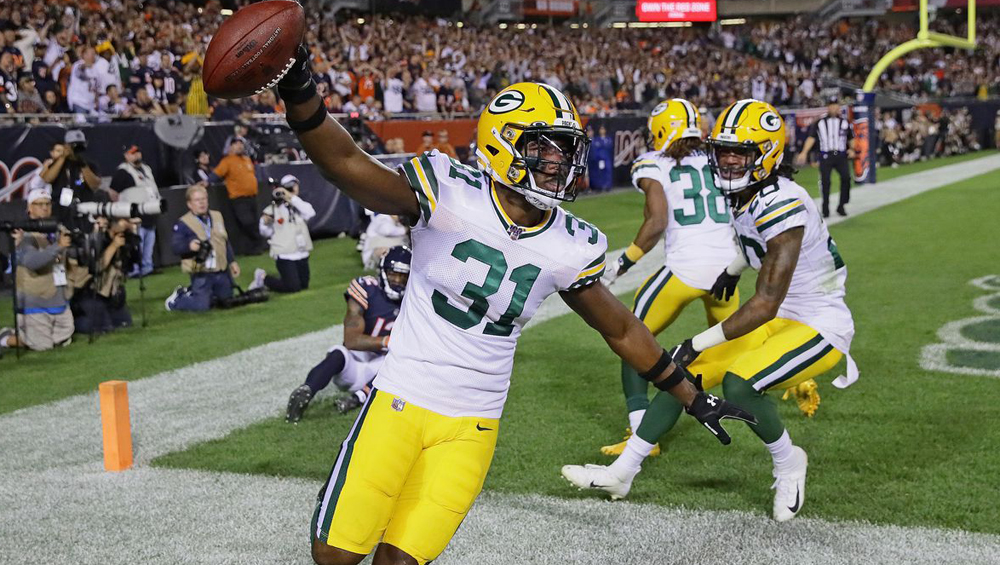
Safe Bet: TV Sports Getting Bigger, Pricier

NEW YORK — The importance of sports broadcasting rights to distributors cannot possibly be understated. And a number of factors in the short term promise to raise the stakes even higher.
Among them: The National Football League’s TV rights are up for grabs in 2021 and 2022 — which promise to command astronomical dollar bids. A plethora of new digital content providers are looking to become players in the sports sector. And an increasing number of states are moving to legalize sports betting, which could serve to increase fan interest and interaction.
“I think everybody here knows that sports is what drives TV in general and live TV,” said Chad Deweese, senior manager at Deloitte Sports and Strategy, a sports business consulting firm, during a panel discussion at TVNewsCheck’s annual TV2020 conference on Wednesday.
“Ratings decline, viewership declines, but sports is always there.… I almost think that advertisers can’t afford not to advertise in sports, even if they don’t know exactly who they’re hitting right now,” he added.
John Ourand, reporter for Sports Business Journal, moderated the panel discussion, “Sports Rights and the Future of Broadcasting.” At its outset, he asked the speakers what advice they’d give the NFL in the wake of the highly anticipated broadcasting rights’ battle royal. (The last go-round netted the league around $46 billion, and with Nielsen set to begin releasing out-of-home ratings next fall — sure to push sports ratings even higher than they already are — there’s no telling what the NFL rights might yield this time.)
After observing that the NFL “operates on a totally separate plane,” thanks in part to the incredible size of the league’s audience, Doug Perlman, CEO of Sports Media Advisors, another consulting firm, said: “They are famously focused on reach and they will continue to do so — and broadcast TV will be a part of the mix — but they also are going to want to explore new platforms, and really leverage their capability to make or break a platform and drive their fans to that platform.”
The NFL’s big audiences are so important to broadcasters because they allow outlets to charge more for advertising, of course, but also because channels can use the games to better promote their other content, said Adam Schwartz, SVP of sports media at Horizon Media, a media services agency. With that in mind, Schwartz offered: “The money is going to be so big, in the grand scheme of things, I wouldn’t be surprised if [the NFL] broke off a portion of [it] and tested it out,” in shorter-termed deals with digital streaming providers and platforms.
Chris Bevilacqua, co-founder of Bevilacqua Helfant Ventures, an investment and business development firm focused on sports and entertainment, also said that the NFL could integrate enhanced broadcasting diversification previously unseen.
But he also quickly added that, because of the NFL’s extended success, exorbitant financial holdings that are only destined to balloon even further, and its leadership’s business acumen, “they don’t need any advice. They know how to use leverage and they know how to do that better than anybody.”
Switching gears to sports gambling, Ourand asked the panel: “What are the opportunities for TV networks?”
Bevilacqua said that, because sports gambling is legalized only on a state-by-state basis, with a handful more seemingly set to pass legislative measures this coming year, “probably in the early going [it] will be choppy on the regulatory front” and will be “difficult for the national platforms to take advantage of it, unless it’s kind of in a free-to-play environment.”
Still, Bevilacqua and fellow panelists emerged bullish on sports gambling’s monetization promise for broadcast distributors.
“A lot of people when they picture sports gambling, they picture somebody betting on who’s going to win the game,” Perlman said. “But what you’re really going to see — and what’s really going to move the needle — is all sorts of in-game betting. So it’s going to come to the point where you can bet on what’s the next batter going to do, what’s the next pitch going to be, what’s the next play going to be, and, again, that’s going to cause people to watch more and to watch longer, which will drive ratings.”
If distributors are going to integrate such interactive betting capabilities into their broadcasts, or at the very least advertise more sports betting companies over the course of their broadcasts, they’re going to have to walk a bit of an ethical tightrope, cast across questions of the role they could play in spurring gambling addiction in viewers.
“The leagues are definitely cognizant of it, and trying to make sure they’re not over the top with that stuff,” Schwartz said. “The NFL has a limit on liquor advertising, for example.… So they’ll probably institute restrictions like that to make sure that [commercial breaks are] not completely saturated with nothing but gambling.”
That said, Schwartz added he would “still expect to see quite a few” ads for sports betting companies going forward.
To read more TV2020 stories, click here


































Comments (1)
RIDGELINE-TV says:
October 18, 2019 at 3:01 pm
TRANSLATION: Your cable bill is going up again…